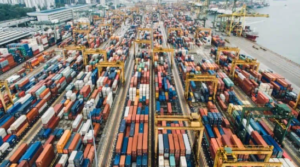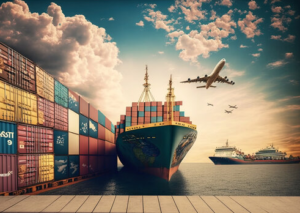
Trade Globally and Climate Policies
Two related elements of global governance that profoundly affect economies, communities, and the environment are international trade and climate policies. The urgent problems caused by climate change call for a review of trade rules and practices as nations participate more in trade to strengthen their economies. Examining the difficulties, opportunities and future prospects of the complex interaction between international trade and climate policies, this paper explores
Dealing with International Trade
International trade, in the context of goods and services, is the exchange across borders. This approach lets nations import some products while specializing in the manufacturing of others, hence improving efficiency and driving economic development. Nonetheless, major environmental expenses including resource depletion and greenhouse gas emissions accompany the advantages of international trade.
The Political Value of Trade
Economic advancement depends on trade. It helps nations to diversify their economy, open fresh markets, and improve consumer options. Trade can also result in technical developments and job creation. Trade is often the road towards economic stability and development for many underdeveloped countries.
The Environmental Effects of Trade
International trade worsens environmental damage even with its economic advantages. While the extraction of natural resources could cause habitat loss, the delivery of goods across great distances results in rising carbon emissions. Developing sensible climate rules depends on an awareness of these effects.
Where Trade Meets Climate Policies
Trade and climate policies have complicated relationships. Trade can, on one hand, aggravate environmental damage; on the other, well-crafted trade policies can support sustainable development.
Trade as the Emissions Driver
The fact that international trade fuels rising world carbon emissions raises one of the most important issues about it. Major sources of greenhouse emissions in the logistics of moving goods including air cargo and shipping are A research by the International Maritime Organization shows that worldwide emissions are roughly 3% related to international shipping.
Policymakers Affecting Climate Change Trade Countries are putting more and more climate regulations meant to lower emissions and advance sustainability into effect. Among the several ways these policies might manifest themselves are carbon pricing, subsidies for renewable energy, and rules on transportation emissions. Such policies might affect trade dynamics, therefore generating possibilities as well as problems.
Difficulties in Matching Trade Policies with Climate Change Strategies
Aligning trade and climate policies presents difficult problems. Nations have to negotiate a complicated web of political pressure, economic interests, and social concerns.
Financial Inequalities
The economic difference between developed and developing nations presents one of the difficulties. Although industrialized countries have more means to commit to sustainable practices, many of them suffer economic pressures that give growth over environmental issues top priority. Tensions in international discussions might result from this imbalance.
Trade Deals and Environmental Guidelines
Trade agreement negotiations provide still another difficulty. Many trade deals mostly concentrate on economic gains, thereby sometimes ignoring environmental criteria. This control can lead to a race to the bottom whereby nations reduce environmental protection in order to draw business. Dealing with this problem calls for including environmental issues into trade talks.
Possibilities for Eco-friendly Trade
Notwithstanding the difficulties, climate policies present many chances to encourage sustainable trade practices.
Green Trade Agreements: Countries can pursue green trade agreements giving environmental preservation top priority. These treaties might have clauses covering technological transfer, renewable energy cooperation, and sustainable resource management. Encouragement of eco-friendly behavior helps to build a structure for steady economic development by means of agreements.

The Place of Technology
Technological developments offer great chances to lessen the trade-related environmental impact. Trade practices can become more sustainable by means of innovations such carbon capture technologies, smart logistics systems, and electric cars for transportation. Putting money into these technologies might result in a better trading scene.
Advancement of Circular Economy
Additionally very important in sustainable trade is the idea of a circular economy, which stresses resource reusing and waste reduction. Adopting circular economy ideas helps nations cut their dependence on raw resources, therefore lowering the environmental effect of commerce.
Case Studies: Effective Combining of Climate Policies with Trade
As models for others to follow, several nations have advanced the integration of trade and climate policies.
The EU’s Green Deal
The European Green Deal is a thorough plan meant to make the EU’s economy sustainable. Measures to lower emissions, support renewable energy, and improve resource efficiency comprise this program. Setting a model for other areas, the Green Deal also underlines the need of matching trade policy with environmental objectives.
Trade and Climate Policy Policies of New Zealand
New Zealand has moved aggressively to combine commercial policies with environmental ones. The nation has promised to cut its emissions by means of several strategies, including support of sustainable agriculture and renewable energy investment. New Zealand also aggressively supports international trade deals with environmental criteria with regard to standards.
Climate Policies and International Trade’s Future
Ongoing talks, technological developments, and shifting consumer tastes will help to define the future of international trade and climate policies as the globe works through climate change.
The Function of Worldwide Collaboration
Dealing with the issues presented by climate change will need worldwide cooperation. Nations have to cooperate to set shared guidelines and policies encouraging trade sustainability. Cooperation will be greatly facilitated by international institutions as the United Nations Framework Convention on Climate Change (UNFCCC) and the World Trade Organization (WTO).
Changing Customer Interests
Consumer tastes are changing as well; demand for sustainable goods is rising. Businesses will have to change their operations to satisfy consumers who grow increasingly ecologically sensitive. This change can spur creativity and support environmentally friendly trade policies.
Trade Affected by Climate Change
Climate change itself will affect patterns of global trade. Rising sea levels, extreme weather events, and changing agricultural conditions can all throw off supply lines and influence product availability. Maintaining economic stability depends on trade policies being changed to fit these difficulties.
Finish
International trade and climate policies interact in a complicated way with both possibilities and problems. While nations negotiate this complex terrain, it is imperative to give sustainable practices top priority in reducing environmental effects and promoting economic growth. Including climate issues into trade policies can help countries toward a more sustainable future, therefore benefiting their economy as well as the earth.
By means of cooperation, creativity, and sustainability commitment, the globe can open the path for a more fair and environmentally friendly trade system. Though the path may be difficult, the benefits environmentally and monetarily are well worth the work.
In essence, the interaction between climate policies and international trade will always change; so, proactive actions will be required to guarantee that trade helps our world to reach its environmental objectives. Trade’s future rests in its capacity to change and welcome sustainability, therefore benefiting all the countries engaged.